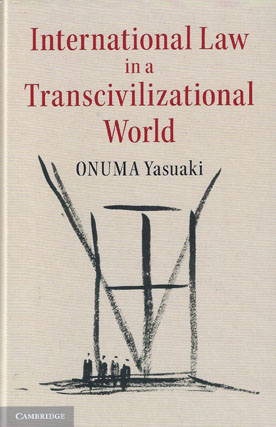We will be closed from 5pm Thursday 17th April for the Easter Bank Holidays, re-opening at 8.30am on Tuesday 22nd April. Any orders placed during this period will be processed when we re-open.

With the resurgence of Asian nations such as China, current West-centric international law is changing in the twenty-first century.
There is a pressing need to address these changes within international legal studies and overcome potential conflicts between existing and emerging powers. This structural transformation also demands a change in understanding of existing ideas and institutions.
This book explores a 'trans-civilizational' approach to international law, supplementing and modifying two other prevalent perspectives: international and transnational. By considering these three layered viewpoints, this book highlights the complex phenomena surrounding the history and development of international law. The author also considers how international law operates and functions within diverse forums such as diplomatic negotiation, international organizations, and domestic political processes.
This book will appeal to international law scholars and students, as well as those interested in the rise of non-Western powers and its impact on the prevalent ideas and institutions of the world.